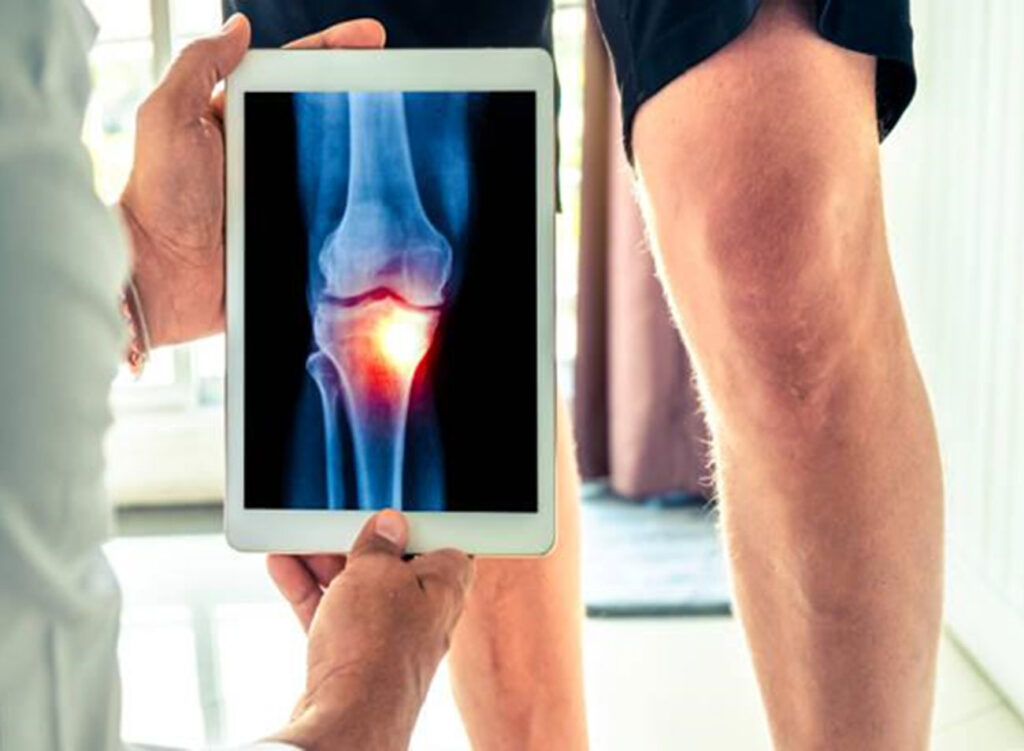There are many different procedures for surgery in the orthopaedic field, particularly for the knees.
There is ‘‘Joint Arthroplasty’ or ‘Knee Arthroplasty’, a term that describes a procedure whereby surgery is done to replace a damaged joint with artificial parts made of metal, ceramic, or plastic. It is also known as ‘joint replacement’ and can be total or partial. There is also a procedure called ‘ joint arthroscopy’ or ‘knee arthroscopy’ which is minimally invasive and uses a mini camera inserted into the joint through small incisions to diagnose and treat conditions and is considered minor surgery.
But do you need knee surgery? When do you need knee surgery? And what are the risks involved? Read on to find out more about knee surgeries in Singapore.
Why Are You Recommending This Procedure?
To understand the recommendation of either a knee replacement or knee arthroscopy in Singapore, you should understand the purpose of those procedures. Your orthopaedic surgeon should be able to explain to you why this procedure is better suited for your knee condition.
- A knee replacement (or knee arthroplasty) is done when a person’s knee joint has been damaged or has undergone degeneration to the point where mobility is reduced, consistent pain occurs during both activities and at rest, and swelling occurs frequently. This usually happens in older populations – the highest age group to undergo knee replacements in Singapore is 75-84 year olds, followed by 65-74 year olds.
- A knee arthroscopy is recommended when an injury within and around the knee joint requires intervention to prevent further injury to the joint and to relieve pain. These injuries usually include a torn ligament or meniscus within the knee. It can also be done for localised areas ofdamaged cartilage, to remove loose fragments within the joint (such as bone or cartilage that has broken off), or to address chronic swelling of the knee.
When Do I Need Surgery For My Knee Pain?
Some tell-tale signs may indicate that knee surgery in Singapore is necessary. Those signs are:
- A severe injury of the knee – Extreme pain, swelling, and being unable to stand or walk after an injury is an indication that it is a severe injury that may require further investigations and possible intervention.
- Your MRI scan shows a complete tear of a ligament or stabilising structures of the knee, resulting in painful instability of the knee that the body cannot naturally heal on its own.
- Your X-Ray or MRI scan shows a bony fracture which also may not heal on its own and is affecting the alignment of the knee
- The level of knee joint degeneration has come to a point where pain, swelling, and restricted mobility have become severe enough to affect your daily activities.
- A trial of conservative care, such as physiotherapy, has been deemed ‘unsuccessful‘ in returning a patient to their previous quality of life.
There may be other reasons that knee surgery is needed. If you have been struggling with a knee condition for a while and it is not getting better, you may need to consult an orthopaedic surgeon in Singapore.
What Are The Benefits Of Orthopaedic Surgery And How Long Will They Last?
In general, the benefits of orthopaedic surgery are:
- A reduction in pain
- An improvement in function
- Allowing a person to return to their normal activities
More specifically, the surgery should target the root cause of your problem to see good benefits. How long the benefits last will also depend on the procedure as well as the aftercare of the patient.
For example, a knee arthroplasty or replacement should benefit a person by allowing them to regain their range of motion and reduce pain after fully recovering from the operation. A recent review showed that approximately 82% of total knee replacements and 70% of partial knee replacements last for about 25 years.
A ligament repair can help to reduce instability in the knee. Paired with appropriate strengthening and conditioning of the muscles around the knee joint after the surgery, this can also provide longer benefits as it prevents the recurrence of another injury to the same knee.
How Successful Is This Procedure?
Asking your orthopaedic surgeon the success rate of the knee surgery procedures they have performed before can help you understand where you are at in terms of your age group and health history. Being younger usually means a faster recovery, though if you have other health conditions, this may also slow down healing. Talk to your orthopaedic surgeon to find out more.
What Kinds Of Risks Are Involved?
The main risks that are involved are similar to any procedure that requires surgery, such as:
- Infection over the wound sites – An antibiotic regimen and appropriate wound care after the surgery helps prevent this
- Deep vein thrombosis (clots in the blood vessels) – Prevented by active rehabilitation as soon as possible after the surgery
- Numbness in the area where incisions were made due to nerve damage
Your doctor will discuss the possible risks with you in detail if you choose to undergo a particular knee procedure.
How Long Will I Be In Immediate Recovery?

Immediate recovery refers to the post-operative period where you have just finished your surgery and are preparing to be discharged. Again, this depends on the knee surgery that you undergo!
- Knee joint replacements are major surgeries. Patients can often leave the hospital after 3-5 days once the appropriate aftercare is taught, but the recovery period can last up to 8-12 weeks.
- Knee arthroscopies are minimally-invasive surgeries and are often done as day surgery, meaning that you can usually be discharged home on the same day. The immediate recovery where pain and swelling are most obvious could take around 3-5 days and progressively reduce over time.
Is There Anything That I Can Do On My Own To Improve My Condition?
If you are experiencing acute swelling and pain, apply the R.I.C.E. principle until you can get to your orthopaedic surgeon – Rest, Ice, Compression, and Elevation. If you are experiencing long-standing pain, gentle stretching and strengthening may help, but long-term pain may indicate a need for further assessment.
How Much Will This Cost Me?
The cost of knee surgery in Singapore depends on your procedure type, cost of materials, and duration of stay in the hospital. It can cost anywhere from $6000 to $30,000 and should be discussed with your orthopaedic surgeon beforehand as cases differ from person to person! If you want to find out more about knee surgeries for your case, contact us at Dr Ananda Vella to book an appointment today.
Dr. Ananda Vella is a Singapore and Swiss-double-fellowship-trained MOH-accredited orthopaedic specialist consultant surgeon, As a former consultant from the Singapore General Hospital and Sengkang General Hospital and with more than 20 years of experience, Dr Ananda treats a variety of orthopaedic bone and joint conditions, including in his subspecialty focus of foot and ankle conditions, hip and knee pains, as well as sports injuries. Dr Ananda is also well-versed in minimally invasive surgical techniques, including having performed the first lateral total ankle replacement surgery in South-east Asia to improve outcomes for patients with severe arthritis.
Dr Ananda regularly practices in 3 clinics across Singapore and is accredited to operate in all private hospitals in Singapore. Should you have any queries or need any further assistance, please do not hesitate to schedule an appointment with our Dr Ananda by WhatsApp at 8860 0642 for assistance. Alternatively, please leave us a message via the enquiry form and we will get back to you as soon as possible.
(All Rights Reserved)




